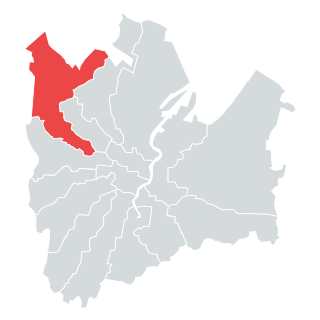Related Research Articles

The Ulster Unionist Party (UUP) is a unionist political party in Northern Ireland. The party was founded as the Ulster Unionist Council in 1905, emerging from the Irish Unionist Alliance in Ulster. Under Edward Carson, it led unionist opposition to the Irish Home Rule movement. Following the partition of Ireland, it was the governing party of Northern Ireland between 1921 and 1972. It was supported by most unionist voters throughout the conflict known as the Troubles, during which time it was often referred to as the Official Unionist Party (OUP).

The Senate of Northern Ireland was the upper house of the Parliament of Northern Ireland created by the Government of Ireland Act 1920. It was abolished with the passing of the Northern Ireland Constitution Act 1973.

The Vanguard Unionist Progressive Party (VUPP), informally known as Ulster Vanguard, was a unionist political party which existed in Northern Ireland between 1972 and 1978. Led by William Craig, the party emerged from a split in the Ulster Unionist Party (UUP) and was closely affiliated with several loyalist paramilitary groups. The party was set up in opposition to power sharing with Irish nationalist parties. It opposed the Sunningdale Agreement and was involved in extra-parliamentary activity against the agreement. However, in 1975, during discussions on the constitutional status of Northern Ireland in the constitutional convention, William Craig suggested the possibility of voluntary power sharing with the nationalist Social Democratic and Labour Party. In consequence the party split, with dissenters forming the United Ulster Unionist Party. Thereafter Vanguard declined and following poor results in the 1977 local government elections, Craig merged the remainder of Vanguard into the UUP in February 1978.

William "Bill" Craig was a Northern Irish politician best known for forming the Unionist Vanguard movement.
St Anne's, a division of Belfast, was a UK parliamentary constituency in Ireland. It returned one Member of Parliament (MP) to the House of Commons of the United Kingdom from 1918 to 1922, using the first past the post electoral system.
Victoria, a division of Belfast, was a UK parliamentary constituency in Ireland. It returned one Member of Parliament (MP) to the House of Commons of the United Kingdom from 1918 to 1922, using the first past the post electoral system.

Independent Unionist has been a label sometimes used by candidates in elections in the United Kingdom, indicating a support for British unionism.
Roy Hamilton Bradford was a Unionist politician in Northern Ireland and a government minister in both the Parliament of Northern Ireland and the 1973 Northern Ireland Assembly.
Joshua Cardwell (1910–1982) was a Unionist politician in Northern Ireland.









William Kennedy Fitzsimmons was a Unionist politician in Northern Ireland.
References
- ↑ "Biographies". Archived from the original on 26 February 2019.
- ↑ "East Belfast 1973-82". www.ark.ac.uk. Retrieved 16 February 2021.